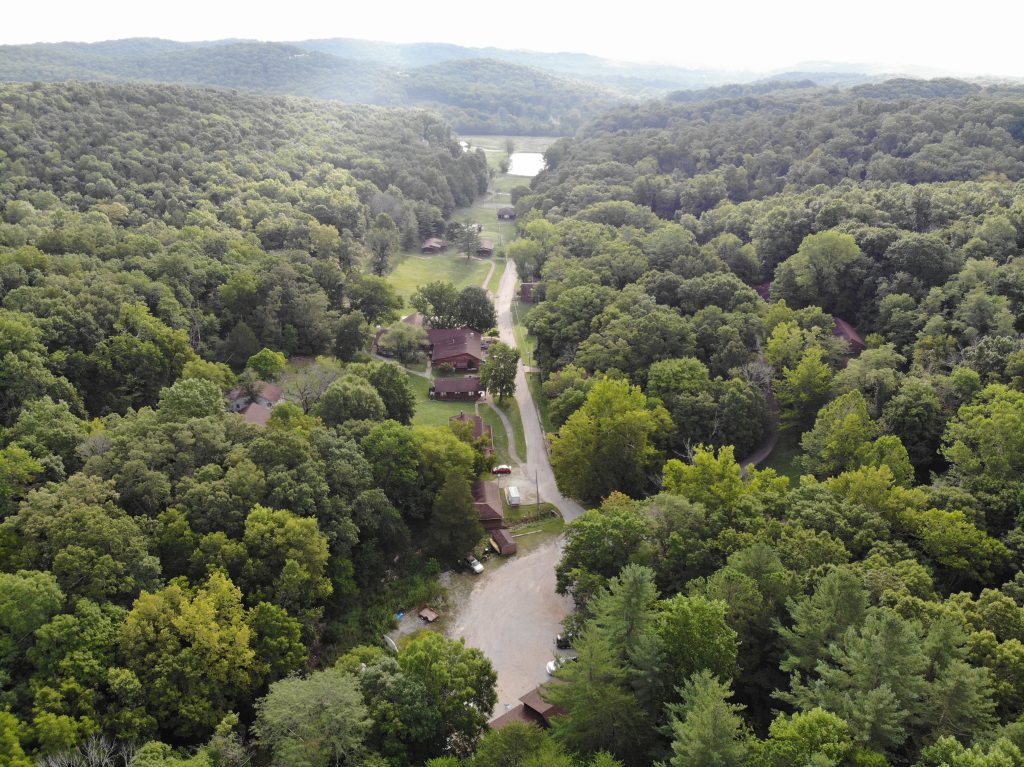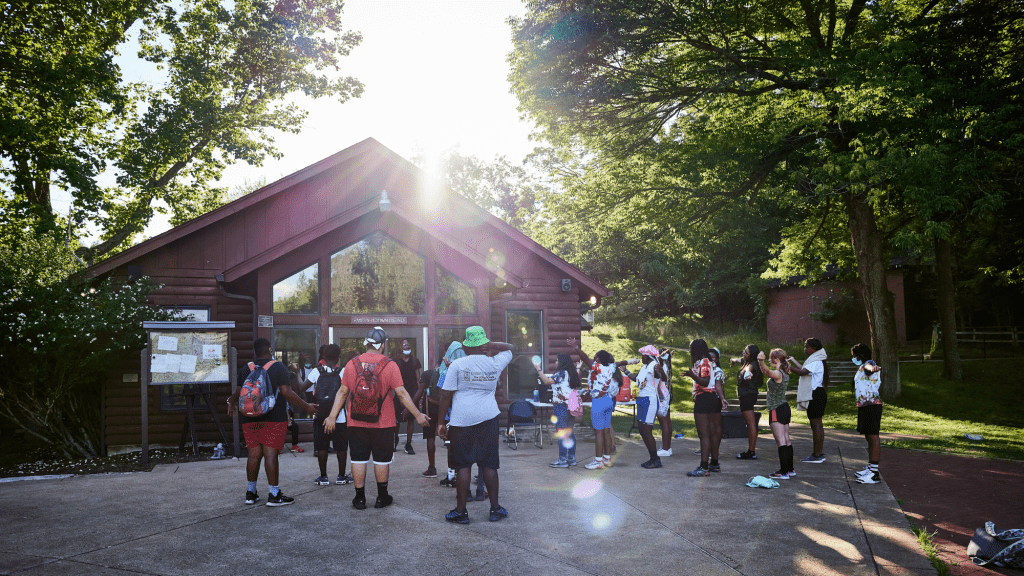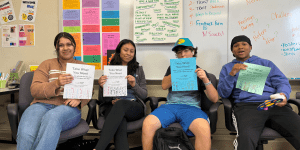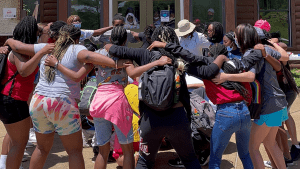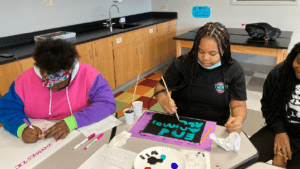As we have shared recently, the U.S. Surgeon General and Centers for Disease Control and Prevention agree that teens today are missing vital opportunities to connect with their peers and communities. With fewer chances to create these social connections, places like Camp Wyman offer spaces that allow for growth and deep, impactful relationships and experiences.
Creating an engaging environment
Camp Wyman is a place where groups and individuals come to build connections and relationships with their peers and the larger, natural world around them. Local schools, non-profit groups, corporate retreats, AmeriCorps teams, and teens participating in Wyman programs all visit Camp Wyman to connect. Through activities like the ropes course, target sports, or just hanging out feeding baby goats, visitors have plenty of opportunities to fully engage with the camp experience and with one another.
“In our younger participants, camp brings out a rowdiness and joy that is incredibly contagious,” says Lead Hospitality Associate Hannah McCaig. “They come to camp and are met with challenges that make them face their fears and work with other people. Camp builds a love for nature, a necessity for companionship and comradery, and a well-managed and healthy way to work through one’s emotions through tough experiences.”
Those challenges, or ‘perceived risks,’ that campers take require teamwork and effective communication. “When a group comes in, the participants all experience a wide range of emotions that allow them to work together with their fellow participants and grow a bond that could last a lifetime,” says Hannah.
And it’s not only young people benefiting from visits to Camp Wyman. “When we have adult groups, they approach our programs and facilities as a space to grow and learn. They gain knowledge of what other people are going through and how to work more efficiently together. Whether they are here for a company retreat or a day of programs, everyone experiences something new; making connections with those who are around them, and the nature that they are experiencing it in,” says Hannah.
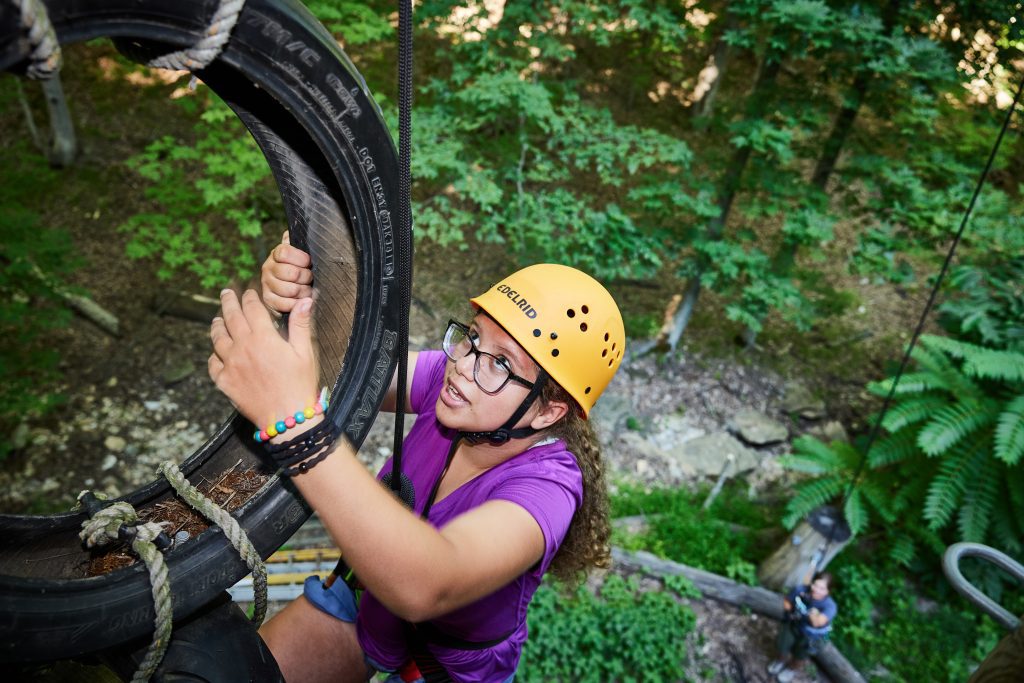
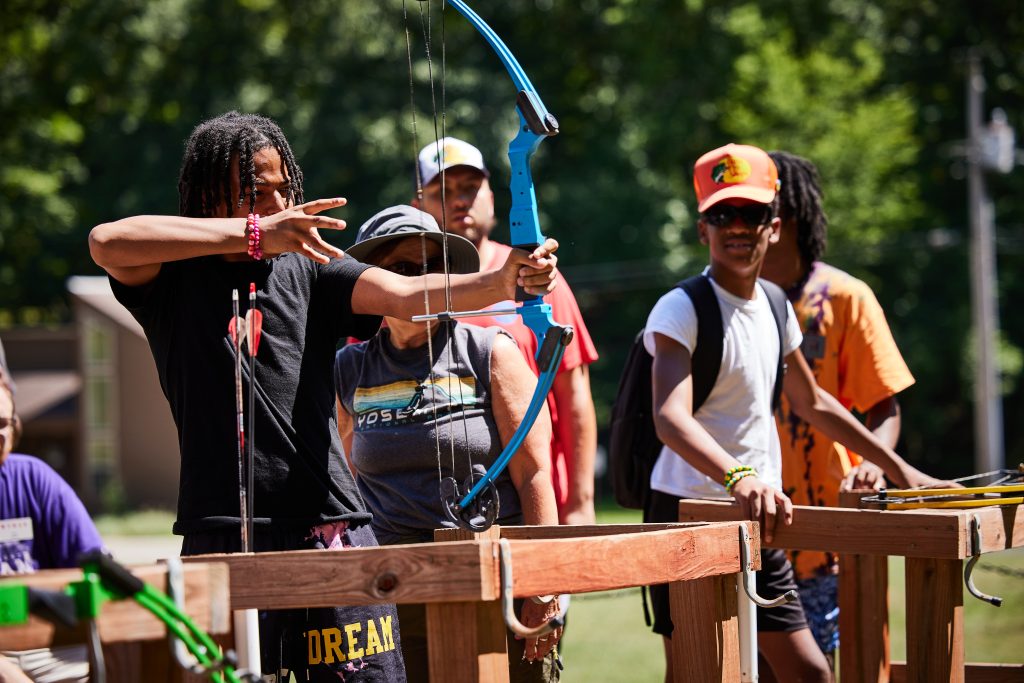
Connecting with their environment
Visitors to Camp Wyman are encouraged to enjoy the experience and the environment without their phones – and most groups do so. The camp also doesn’t have screens in the buildings around the property. Because of the nature of the activities, it really forces you to engage with each other. Trying to carry a phone when you’re in a climbing harness just doesn’t work.
And participants get to see the benefits of going screen free. According to Hannah, “Not having a phone encourages participation and gives them a chance to solve things on their own. When they don’t have access to their devices, they have to work with their teammates – improving their communication skills and building friendships. Campers pay more attention to the world around them. Seeing the critters that call camp home, enjoying an interactive hiking trail, or even just spending time with friends creates the opportunity for each person to discover things they never would have seen or felt before.”
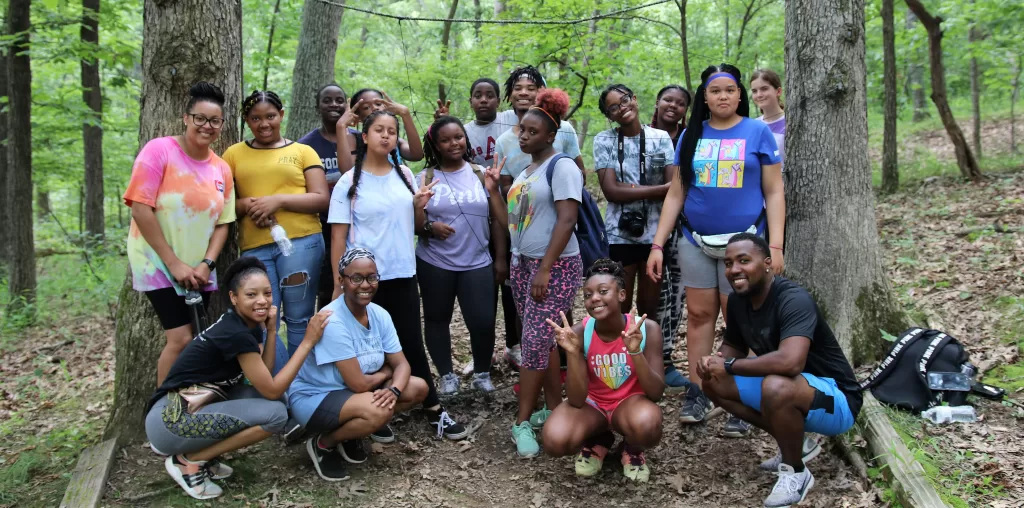
Connecting with peers
Camp becomes an incredible place to make strong connections. When young people are at home or school, there are other stressors and distractions all around them. Here they can just focus on the task at hand – really experiencing and enjoying it with the people around them.
“It is one of the most bittersweet evolutions of a camper – going from not wanting to be here to never wanting to leave. Knowing all the staff by their camp names and making new friends,” says Hannah.
Activities at Camp Wyman are designed to forge strong relationships and connections through experience. The Leap of Faith, where campers jump from the top of a climbing tower in their harnesses, is often a big moment for groups. The support participants give one another is so impactful, and the increased vulnerability that they show in front of each other can be a big equalizer. They have that shared experience to talk about, and you always notice a big difference afterward.
Camp activities also build communication skills when campers least expect it. While canoeing, you must communicate really well with your partner. The person in the front can see obstructions and must effectively communicate hazards. Yelling, “Rock, right there!” doesn’t help the person in the back because they can’t see the rock and don’t know how to avoid it. Campers have to figure out how to communicate that.
And they need to trust each other, trusting the person in the back to be able to steer correctly, and know where they’re going. Trusting that they can both hold their balance and react appropriately to challenges.

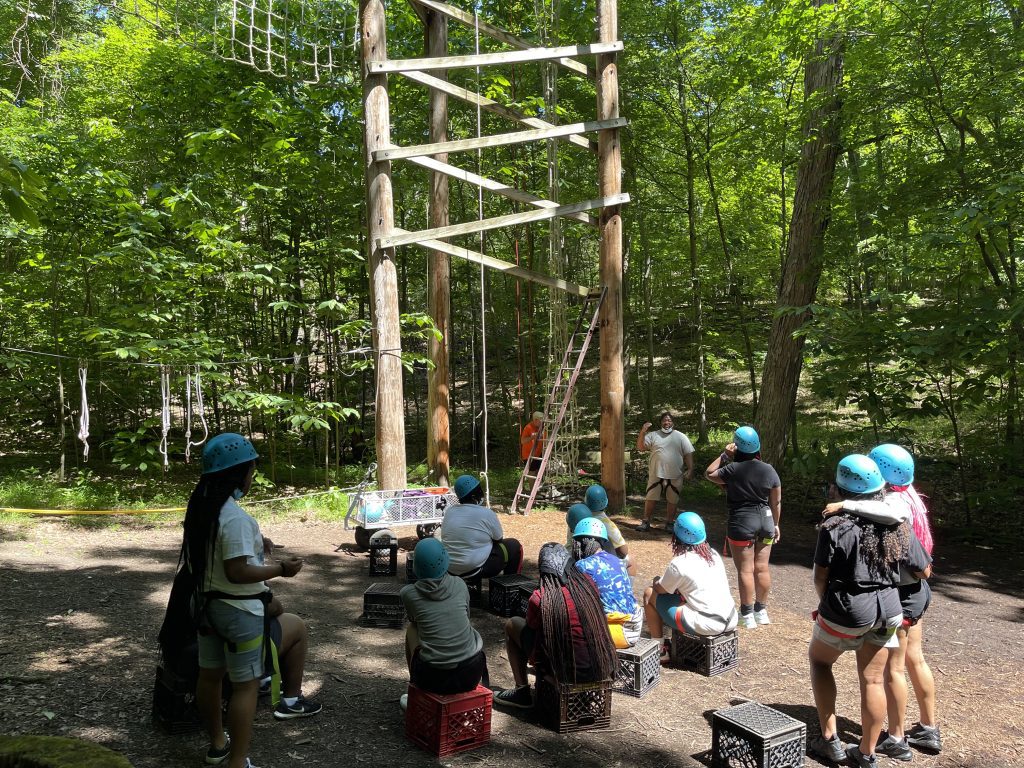
Connecting with adults
At camp, it’s not just connections with their peers that have a huge impact. Campers also make lasting connections with staff. Group leaders and counselors are the ones supporting them through this experience, and campers can see the example being set by the counselors who are also persevering to get through challenges with a positive attitude. Throughout camp, counselors become somebody the young people can talk to and help coach them. It really strengthens that connection, and that gives our staff the ability to have more of an impact.
According to Hannah, “Being at camp and working with all the people who come through creates an inclusive and strongly diverse community. So many people come to camp, and they each get to leave with a different story. It’s a wonderful opportunity for all the participating people: staff, campers, and counselors, to get to know one another more and grow through their stay here.”
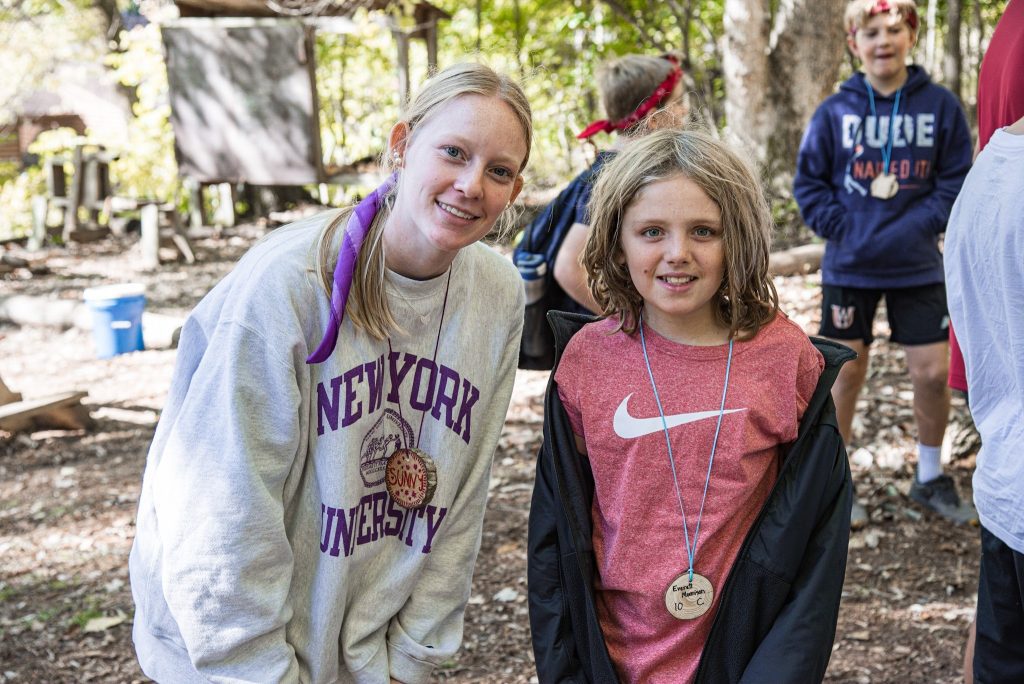
Connecting with the community
Wyman is well known for its origins as Camp Wyman and the camp experiences we began offering to youth in St. Louis in 1898. It has served as the birthplace to our proven programs and supports – Wyman Leaders, the Teen Outreach Program® (TOP®), and the Teen Connection Project® (TCP®) – that are now offered to young people in St. Louis and across the country. And it remains an important piece of the work we do.
Camp opens minds, hearts, and spaces. It shows campers the importance of communication, perseverance, and relationships. The powerful impact of camp helps young people build confidence in these areas through practice – and it can have the same transformational effect on staff and members of our community.
“I have made so many more friends and relationships here at camp than I ever thought was going to be possible for someone as shy as myself. And I wouldn’t have anyone else to thank for that except Wyman,” says Hannah.
Since 1898, more than 1 million children, youth, and community members have forged connections, grown in knowledge, and increased their well-being at Camp Wyman. We are dedicated to welcoming even more people to Camp in the decades to come.
Call to action
We know that Camp is one way we can promote health and healing among today’s youth and support healthy and authentic connections. We invite you to partner with us to help more teens build and sustain social connections.
- Share this with your network and advocate for the teens in your life. You can make sure that social connections and healthy relationships remain a priority by directly supporting the young people you care about, ensuring that the right resources are available to them, and advocating for them with policy makers.
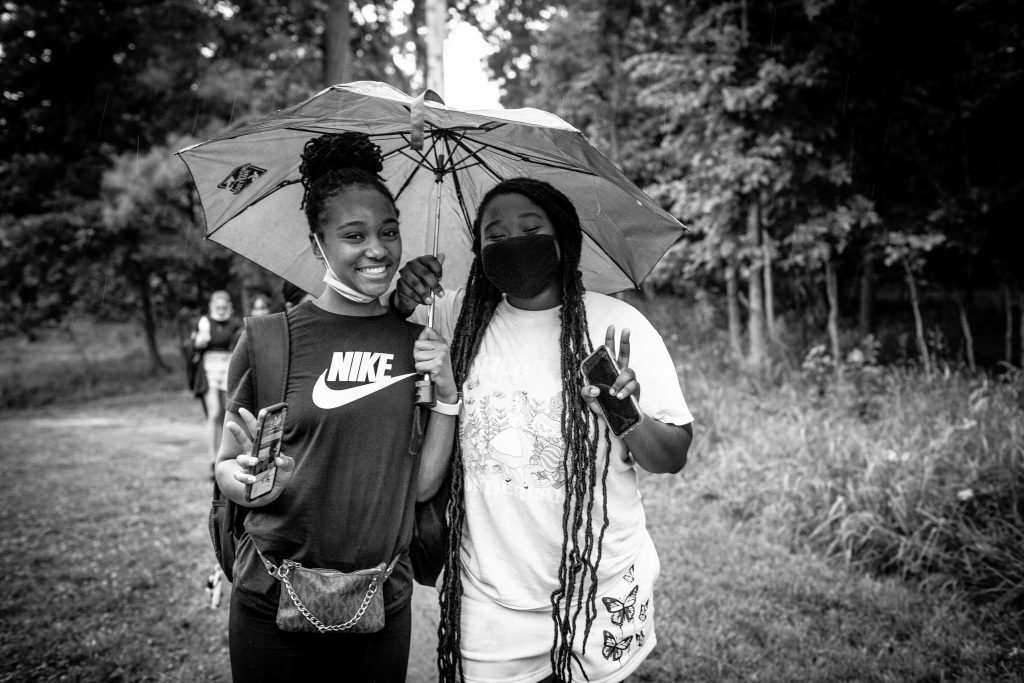
- Become a donor to help restore and improve historic Camp Wyman. The Mabee Foundation has given Wyman a challenge grant to support our capital campaign, but we need YOUR help to make it happen! We need to raise $174,002 by April to receive the challenge grant. By making a donation today, you can help us hit this goal and help us make Camp Wyman more accessible, inclusive, and energy efficient – and ensure it continues operating as an important part of our programming and the community. To make a donation, visit Capital Campaign | Wyman Center. We also have Neighborhood Assistance Program (NAP) tax credits available for eligible donors who make a gift to the capital campaign!
